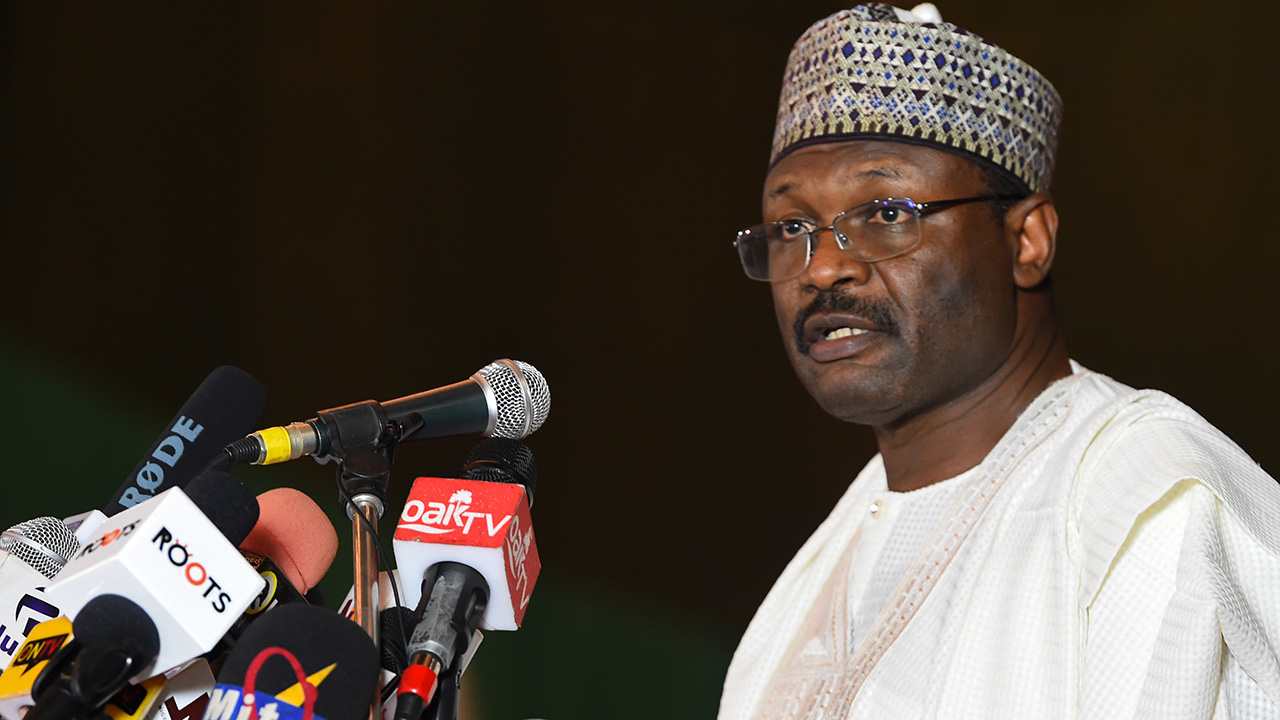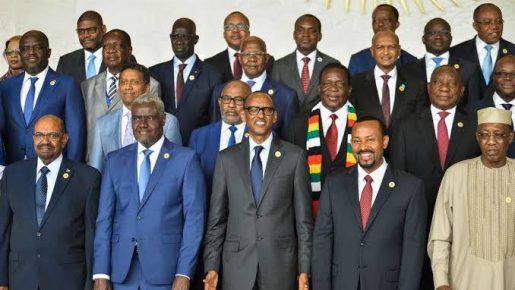
Mahmood Yakubu, Professor of Political History and International Studies is a man of history. He was the first man to earn a first class degree in History from the University of Sokoto, now called Usman Dan Fodio University. History lacks the precision of Engineering or Mathematics and is therefore a very difficult subject for anyone to get a close-to-perfect result, but the man who would later become an expert in guerrilla warfare got it. Now, he has just added another first to his record by earning a second term as the Chairman of Nigeria’s Independent National Electoral Commission (INEC). This reappointment is an indication that President Muhammadu Buhari is satisfied with the way he did his tough job in the last five years. Of the past 12 or so managers of our elections since independence no one has the good fortune or ill luck, take your pick, of being on the hot seat twice. Professor Yakubu is chosen for the second time not necessarily because our elections under his watch have been rancour-free or unassailably perfect but because he has handled his arduous assignment with a large dose of integrity, evenhandedness and equitableness. There is no one who has conducted Nigeria’s elections without a storm of criticism accompanying him. Yakubu is not an exception. The reason is that most Nigerian politicians are bad losers. Once they lose, they claim that the election was rigged, unfree and unfair. If they rig and win then the election was free and fair.
I think President Donald Trump of the United States obviously borrowed a chapter from the playbook of Nigerian politicians. He is trying very hard to turn his country into a shit-hole, if I may borrow from him the word whose patent he owns. Sorry for the digression. But you are aware that since 1979 when we changed from parliamentary to presidential system of government we have had nine presidential elections.
All of them except one have ended in disputes which are dragged all the way to the Supreme Court. Only President Goodluck Jonathan was courageous and patriotic enough to save us from the anguish of a potential volcanic eruption by conceding defeat to Buhari in the 2015 elections. Today Jonathan remains in the eyes of Nigerians and the international community a respected global citizen who is much sought after for trouble shooting assignments.
Eventhough our electoral umpire is called Independent National Electoral Commission (INEC) there are many Nigerians especially politicians who think that it is far from being an independent institution. Therefore every electoral chief lives under the public suspicion that he is there to do the bidding of the government in power. Professor Yakubu was by no means an exception particularly in cases where he declared some gubernatorial elections inconclusive.
In the 2019 elections such declarations were made in seven states namely, Sokoto, Bauchi, Adamawa, Benue, Kano, Plateau and Rivers. These declarations made many Nigerians furious. However, Yakubu’s handling of the elections in Zamfara and Rivers States surprised many naysayers. Those two elections represent the true test of his integrity, impartiality and evenhandedness. In the two states, there were intra-party squabbles which prevented the ruling party, APC, from submitting the list of its candidates within the approved time frame.
The chairman of the APC Mr Adams Oshiomhole threatened that nothing under the sun would stop his party from fielding candidates in the two states. Yakubu called his bluff by taking a courageous and principled stand on the matter. The APC took the matter to court and lost. Today, the two states are run by PDP Governors, thanks to Mahmood’s sense of fairness and firmness.
Those two cases convinced many Doubting Thomases that the INEC Chief was capable of being fair, firm and evenhanded. He consolidated this positivity by the fair manner he conducted the Edo and Ondo governorship elections in September and October this year. In particular, the Edo election which involved Mr Godwin Obaseki who had crossed from the ruling party which had despised him to the opposition party was a test case for INEC’s impartiality. Amazingly, INEC did not yield to the pressure that was allegedly piled on the institution not to let the state slip into the waiting embrace of the opposition. The votes of the people were counted. And they counted in the overall decision of who was to rule Edo State. Obaseki won.
The Ondo State Gubernatorial election in which the incumbent APC Governor Mr Rotimi Akeredolu trounced two significant opponents was also considered to be a strong evidence of INEC’s desire to ensure that all future elections were free, fair and credible. It is obvious that Yakubu is unlikely to have any major obstacle to his confirmation by the Senate for a second term. We should therefore draw his attention to the challenges that lie ahead which need to be addressed for Nigeria’s democracy to deepen and thrive.
The Electoral Amendment Bill passed by the 8th National Assembly did not receive Buhari’s assent. That Assembly also did not try to override his veto. That bill ought to be revisited by the current National Assembly because, if passed, it will improve the management of our elections. Also, the Justice Mohammed Uwais Committee on Electoral Reforms submitted a report since December 2008. That report seems to be gathering dust in someone’s office somewhere. There was quite a number of recommendations on such issues as electronic voting, defections from one party to another, independent candidacy as well as a ceiling on donations by individuals to candidates and parties. If the issues raised in that report are attended to by both the Executive and the Legislature, INEC’s job can be made a little easier and our elections can become more rancour-free.
As all our past elections have shown there is a basic lack of trust by many Nigerians in our politicians and in the ballot box. That is why there has been from one election to another a huge voter apathy. There are a number of other factors that are responsible for apathy. Many politicians do not deliver on their election promises. Many voters therefore think it is useless going out to vote. Violence at campaigns and elections discourage some potential voters from taking the uninsured risk of going out to vote. In the 1999 presidential elections the percentage of registered voters that actually voted was 52.1%. In 2003 it rose to 69.1%. Since then there has been a progressive decline in the voting numbers. In 2007, the figure dropped to 57.6%. In 2011 it came down to 55.3%. In 2015 it plummeted further to 42.7%. In last year’s election where there were 84 million registered voters only 28.6 million actually bothered to vote. That was a miserable 35.66% of the registered voters.
Raising voting numbers is the joint responsibility of the parties, candidates, civil society groups, the media, INEC and people of influence in various communities. Many African countries have done far better than Nigeria in combating voter apathy. Their voting figures are close to 100%. Look at these: Rwanda’s 2017 presidential election produced a 98.2% voting record; Equatorial Guinea (2016) 92.7%; Angola (2017) 90.4%; Seychelles (2016) 90.1%; Guinea Bissau (2019) 89.3%; Zimbabwe (2018) 84.2%.
For Nigeria to deepen its democracy the voting figures have to go up drastically. That means that all concerned must work on improving voter education. Voter education can also help in checking election rigging. Election rigging can only happen when there is collusion among the triumvirate namely, politicians, INEC officials and security personnel. Where there is no collusion no rigging of fundamental significance can take place. There is no perfect election anywhere in the world but rigging can be substantially reduced once the people are interested in ensuring that their votes count. But in Nigeria poverty in an issue. Many of the people who sell their permanent voters cards are poor. For them those cards mean little or nothing but a few thousand naira can mean a lot to them. It can mean the difference between a full stomach and an empty one. Such situations make the job of INEC more complicated than it ought to be. However, with the experience of the last five years it is expected that Yakubu has become more knowledgeable about our election pyrotechnics to be able to give to Nigeria elections that are manifestly fairer, freer and more credible in the next five years than what we have had in the last five years.






